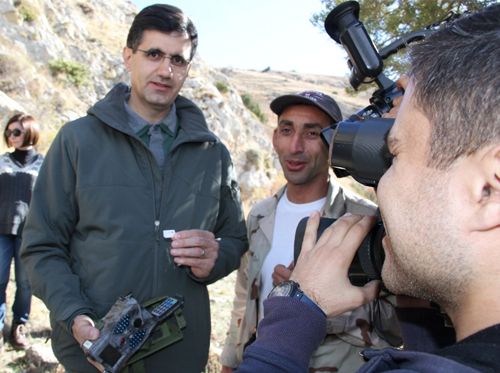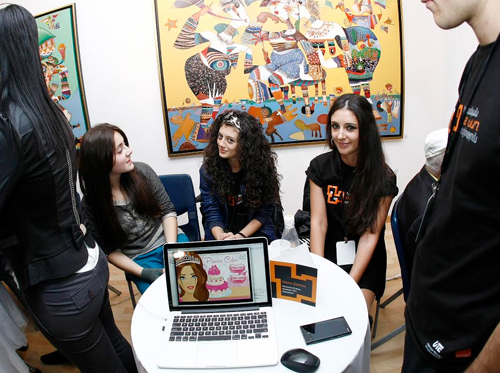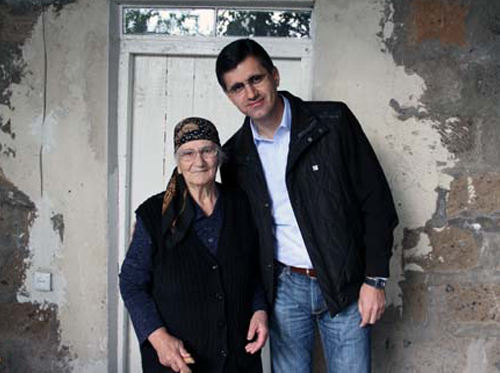16:32 | 24.10.14 | News | 5119
New generation of IP and GPS surveillance cameras for wildlife monitoring in the Caucasus Wildlife Refuge
During a tour organized for media representatives, the Foundation for the Preservation of Wildlife and Cultural Assets (FPWC) with its General Partner VivaCell-MTS, have presented a new generation of IP and GPS surveillance cameras for wildlife monitoring in the Caucasus Wildlife Refuge. The refuge is located near Urtsadzor village in Ararat region. The cameras, which were acquired within the framework of the joint project, provide a unique opportunity for round the clock surveillance of animals in the area. While the IP cameras provide a continuous real-time video stream that can be watched and recorded on computers and screens far away (for example in the ranger station or in FPWC’s office) the GPS cameras are triggered by motions. As soon as there is a movement in the area the GPS camera immediately sends reports and images through an SMS-message or electronic mail. This provides not only the opportunity to get information about passing by animals but it also reveals any illegitimate human intruder in the area for example poachers. Cameras work during day and night, and in any weather conditions, ensuring high quality images and accuracy.
The launching of the cameras was made possible by the high-speed internet coverage available in the Caucasus Wildlife Refuge, provided by VivaCell-MTS. Adjacent to the Khosrov Forest State Reserve in an uphill area (on a mountain 1300 meters above sea level) the company has set up a base-transceiver station providing uninterrupted internet and mobile connectivity. Mobile access to voice and data services will also support the development of eco-tourism in rural areas, especially in the Ararat region.
In order to provide electricity supply to the base station, an electricity transformer was installed, and a 1.5 km-long high voltage power line was carried on from the major supply line to the top of the mountain, using wooden poles. Thanks to VivaCell-MTS, another power line was provided to the center, for pumping water from the river and for watering 2,000 newly-planted trees needing regular irrigation.
Moreover, during the media tour the participants were introduced to the unmanned surveillance system that was established within the Caucasus Wildlife Refuge’s project. Both the camera and the surveillance system have the capacity to constantly monitor remote locations, delivering real-time information and data about the territory. As already noted the system will also serve as an effective tool in the fight against poaching.
This video surveillance system, that is the most innovative approach in Armenia to receive necessary data about wildlife in remote areas, has been made possible by the generous support of FPWC’s General Partner VivaCell-MTS.

17:29 | 24.09.25 | Articles
Jacopo Losso on Cross-Border Investments and Why Armenia Attracts Angels









